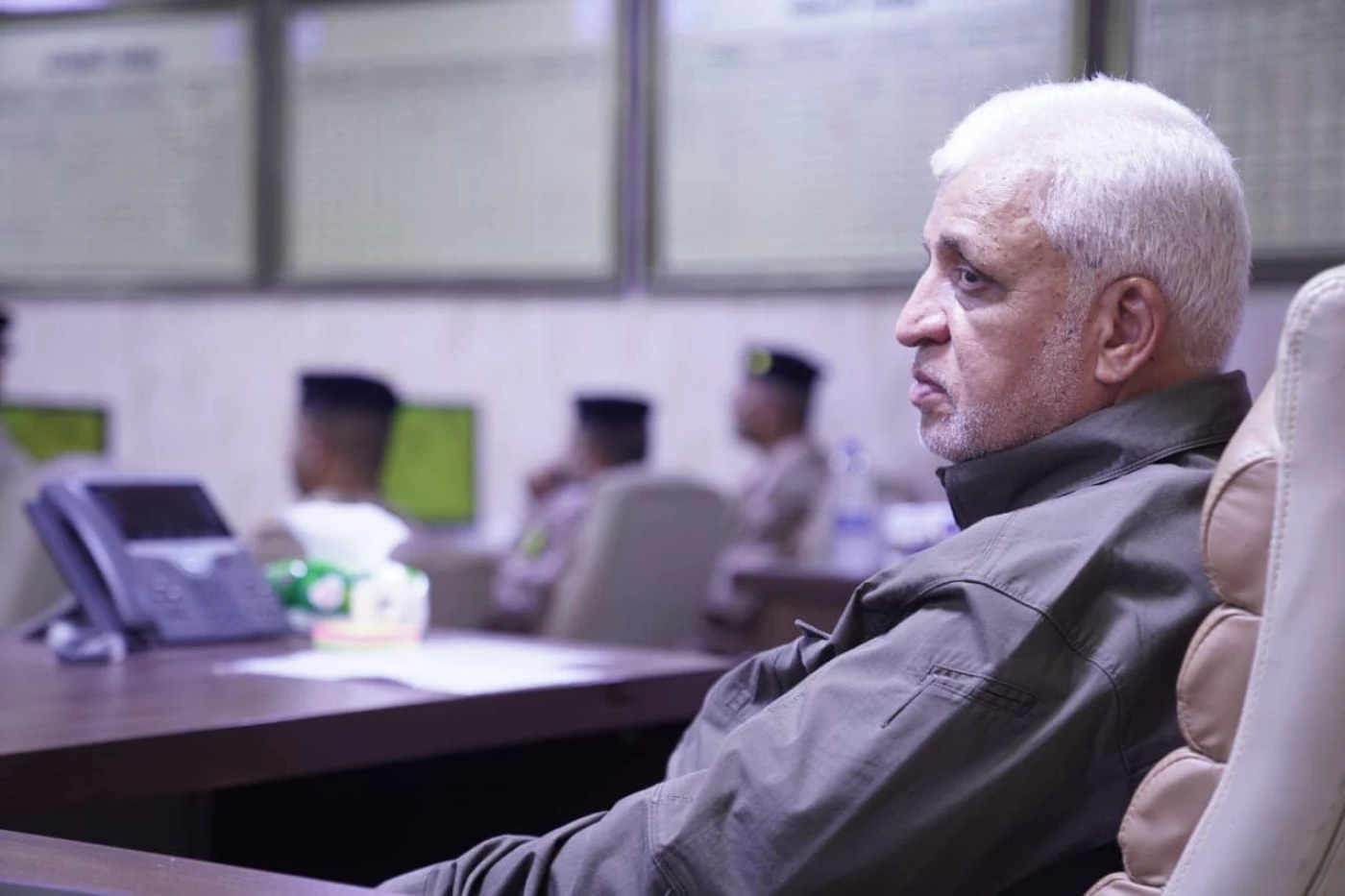ERBIL, Kurdistan Region of Iraq - Falih al-Fayyadh, chairman of Iraq’s Popular Mobilization Commission (PMC) since 2014, is facing an undeclared campaign, which includes parties close to him, aiming to remove him from the position under different pretexts, with sources claiming that the goal of the parties is seizing the post for themselves.
The PMC is the official government agency which brings all Popular Mobilization Forces (PMF) groups under state control. The commission was established in December 2016 after the parliament passed a law that defined the legal status of the PMF.
The first calls to remove Fayyadh came from Asaib Ahl al-Haq (AAH), one of the most powerful Iraqi armed factions, and its political wing in the parliament, al-Sadiqoun Bloc, after footage circulated on social media in March 2024 showing the PMC chief shaking hands with Ali Hatem al-Suleiman, a Sunni tribal leader who was a key figure in the 2013-2014 anti-government militant clashes in Anbar.
“It is time to dismiss Fayyadh,” said AAH Secretary-General Qais al-Khazali during a forum days after the infamous handshake.
Khazali provided two arguments for his call: One was that Fayyadh has exceeded the legal age for retirement – 60 years - and the law must apply to everyone, and the other was that he was the chairman of the PMC and the head of a political party at the same time.
“How will Fayadh respond to the families of the martyrs after he visited Suleiman, who stood on a platform of sedition to support terrorism and incite the overthrow of the political authority, and attacks on the security forces, especially the PMF?” said Sadiqoun MP Hassan Salem in March 2024. “Does he deserve to be the commander of our sacred forces?”
In the same month, Ahmed al-Musawi, another Sadiqoun lawmaker, called on Fayyadh to apologize for shaking hands with “one of the leaders of sedition,” before directing a clear threat toward the PMC chief saying: “We will fulfill our religious and legal duty toward you.”
Fayyadh responded to the backlash during a televised interview, calling his encounter with the Sunni tribal leader “a coincidence,” and saying that he only greeted Suleiman “out of respect for tribal traditions.”
The calls for ousting Fayyadh quieted down for a couple of months, before resurfacing in full force with reports suggesting that the ruling Coordination Framework, an alliance of Shiite political factions, wanted to replace Fayyadh, as he is subjected to US sanctions for “his connection to serious human rights abuse.”
Hadi al-Amiri, head of the Badr Organization and the Fatah Alliance in the parliament, denied the rumors of replacing Fayyadh.
In a televised interview in September 2024, Iraq’s former Prime Minister and State of Law Coalition leader Nouri al-Maliki said that the retirement age is a decision issued by the Administrative Court and does not target anyone in particular “whether that is PMC chairman Falih al-Fayyadh, or anyone else.”
Both Amiri and Maliki are key leaders in the Coordination Framework.
Thaer al-Jabouri, a State of Law Coalition MP, said that the law referring employees to retirement based on their age applies to Fayyadh, noting that Maliki “did not express a position of support or rejection” regarding the dismissal of the PMC chief in his remarks.
"Referring Fayyadh to retirement rather than dismissing him is not without a political aspect, and also Fayyadh's personality is not military, as he was not originally a military man,” Jabouri told The New Region.
Sources who spoke to The New Region said that there were attempts within the Coordination Framework, led by Maliki and Khazali, to refer Fayyadh to retirement, while Iraqi Prime Minister Mohammed Shia’ al-Sudani wishes to keep him in the position.
Khazali wants to seize the position for himself, while Maliki will try to impose Abdul Amir Yarallah, Chief of the General Staff of the Iraqi Armed Forces, as a candidate for the position, according to the sources. Abu Fadak al-Muhammadawi, the Chief of Staff of the PMF, is also reportedly eyeing the post.
Political science expert Ihsan al-Shammari said that the insistence on replacing the PMC chairman is due to the “significant competition within the Shiite camp,” adding that the major humanitarian and financial resources that come with the position are the reason for the dispute and competition.
“Replacing Fayyadh does not carry a positive and good message for the US, because most likely someone from the factions or affiliated with one of the militias will be appointed to replace him,” Shammari told The New Region.
The expert also cited Fayyadh’s alliance with Sudani as one of the possible reasons for the campaign against him.
Tensions within the Coordination Framework have escalated since the formation of the current cabinet in 2022, with many of the alliance’s parties strongly criticizing Sudani and calling for his removal from the premiership.
Political researcher Ali al-Baidar said that Fayyadh’s case needs to be handled legally, whether it is keeping him in the position or referring him to retirement.
“Dealing with the head of the commission as a political position has dimensions and consequences through which the PMC may be targeted in the media and an attempt may be made to weaken it,” said Baidar, stressing that the case is “sensitive and important” and needs to be resolved through the Supreme Judicial Council.



 Facebook
Facebook
 LinkedIn
LinkedIn
 Telegram
Telegram
 X
X


